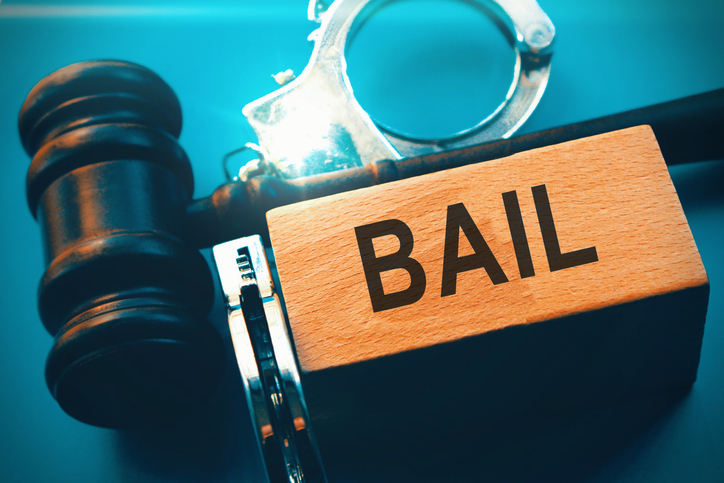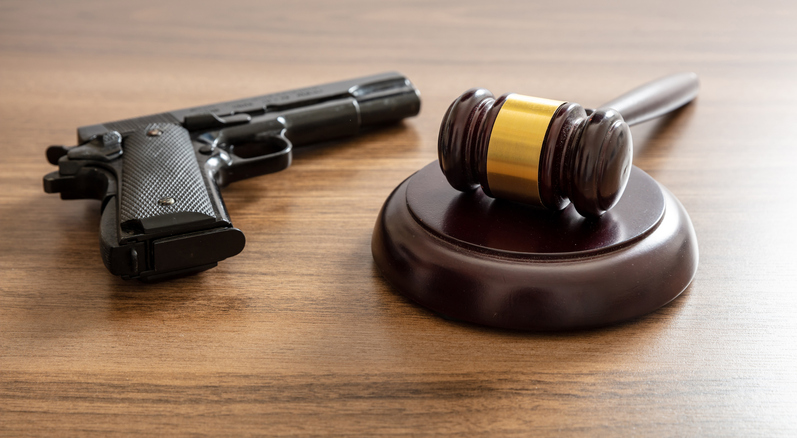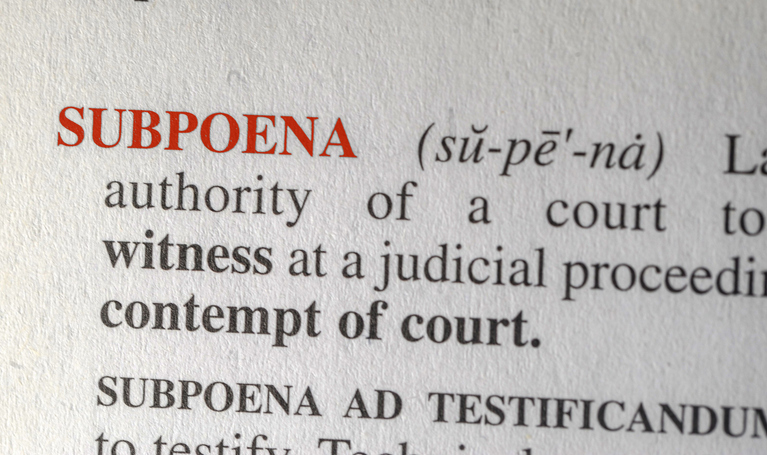Share
Share

Pretrial detention occurs when a federal judge holds a defendant in custody while awaiting trial. Most people are familiar with “bond” or “bail” on a state level, but very few have experience with federal pretrial detention hearings. The federal defense lawyers at Evergreen Attorneys have experience and knowledge about pretrial detention in federal courts. Whether you have recently been charged, or are being held in custody awaiting trial, contact us today to discuss your options.
Evergreen Attorneys Can Help
Not every federal defendant is subject to pretrial detention. However, in cases where detention is at issue, you need experienced federal criminal defense attorneys to protect your interests and your freedom.
Whether you have just been charged and the government has moved for detention, a magistrate has ordered detention pending trial, or you need to appeal a district judge’s order of detention to a higher court, the lawyers at Evergreen Attorneys are here to help. These matters usually have very short time frames to seek relief, so do not hesitate to contact us today at (303) 948-1489.
Understanding Bond and Pretrial Detention
Once a person has been charged with a federal crime, the government may move for detention pending trial. In these cases, the government must show clear and convincing evidence that the defendant is a flight risk or danger to the community. In some cases, however, detention is presumed and the burden shifts to the defendant to show that they will not flee and do not pose a danger to others.
This evidence is presented during a pretrial detention hearing. A detention hearing is held at the defendant’s initial appearance, or at most, five days after. The Bail Reform Act of 1984 governs how detention hearings are held. If the court finds that there are conditions it can place to ensure a defendant appears at future hearings and is not a danger to the community, bond can be granted and the defendant released under supervision. However, if the judge determines no such conditions or combination of conditions exist, then the defendant is held in custody until trial.
The Pretrial Detention Hearing
Pretrial detention hearings are incredibly important to ensuring an individual’s freedom while they await trial. Most everyone knows the phrase “guilty until proven innocent.” However, an innocent person can still be held in pretrial detention until a jury renders it verdict after trial.
Who Bears the Burden?
If the offense does not presume detention, as discussed below, the government bears the burden of establishing that no condition or combination of conditions of pretrial release will reasonably ensure that the defendant is not a serious flight risk and does not present a serious risk to others.
However, a rebuttable presumption that no conditions will reasonably ensure the appearance of the person and the safety of the community arises in certain cases. When there is a rebuttable presumption, the burden shifts to the defendant to present evidence that they are not a flight risk or a danger to the community.
A rebuttable presumption arises when there is probable cause to believe the accused committed:
- An offense under the Controlled Substance Act (21 U.S.C. § 801 et seq.) or Controlled Substance Import and Export Act (21 U.S.C. § 951 et seq.), or chapter 705 of title 46;
- An offense under 18 U.S.C. §§ 924(c), 956(a), or 2332b;
- An offense under 18 U.S.C. § 2332b(g)(5)(B) for which a maximum sentence of 10 years imprisonment can be imposed;
- An offense under Chapter 77 of Title 18 for which a maximum sentence of 20 years can be imposed;
- An offense involving a minor victim under section 1202, 1591, 2241, 2242, 2244(a)(1), 2245, 2251, 2251A, 2252(a)(1), 2252(a)(2), 2252(a)(3), 2252A(a)(1), 2252A(a)(2), 2252A(a)(3), 2252A(a)(4), 2260, 2421, 2422, 2423, or 2425 or Title 18.
Detention is not mandatory in these cases; however, when the defendant bears the burden of proving a negative, it is incredibly important to have competent criminal defense counsel present evidence that shows the defendant can be released on bond before trial with appropriate conditions.
What Happens During a Detention Hearing?
Since detention hearings occur so quickly after an initial appearance, they are a bit like the Wild West of court hearings. The Federal Rules of Evidence do not apply at detention hearings. This means evidence that is hearsay or would typically not be admissible at trial can and does come in during a pretrial detention hearing.
Usually, the government has the arresting officer or case agent testify. Since the Rules of Evidence do not apply, this testimony is often full of speculation and can be highly inflammatory in some cases. The government will do everything it can to paint the defendant as the worst person imaginable in order to obtain detention before trial.
While the Federal Rules of Evidence do not apply, Constitutional guarantees do. The defendant is entitled to be represented by counsel and can receive court appointed counsel if they are financially unable to retain an attorney. The accused is also afforded the opportunity to cross-examine witnesses, present their own witnesses, testify on their own behalf, or present information by attorney proffer.
What Factors Does the Judge Consider?
After hearing the evidence and argument presented during the pretrial hearing, the judge is required to consider a number of statutory factors to determine whether pretrial detention is appropriate. These factors include:
- The nature and circumstances of the offense charged, including whether the offense is a crime of violence, a sex trafficking crime, terrorism, or involves a minor victim, controlled substance, firearm, explosive, or destructive device.
- The weight of the evidence against the person.
- The history and characteristics of the person, including:
- the person’s character, physical and mental condition, community ties, past conduct, history relating to drug or alcohol abuse, criminal history, and record concerning appearance at court proceedings; and
- whether, at the time of the current offense or arrest, the person was on probation, on parole, or other release pending trial, sentencing, appeal, or completion of sentence for another offense.
- The nature and seriousness of the danger to any person or the community that would be posed by the person’s release.
The judge is required to consider these factors in determining whether a condition or combination of conditions can reasonably ensure the defendant is not a flight risk or danger. As such, it is vital that defense counsel address each of these factors in their argument at the detention hearing.
What Happens if a Defendant is Ordered Detained?
If the court finds no conditions satisfy the criteria for pretrial release, it will issue a detention order. The detention order will include:
(1) Written findings of fact and a written statement for the reasons for detention.
(2) Direct that the person be committed to the custody of the Attorney General for confinement in a correctional facility separate, to the extent practicable, from persons awaiting or serving sentences or being held in custody pending appeal.
(3) direct that the person be afforded reasonable opportunity for private consultation with counsel; and
(4) direct that, an order of the court of the United States or on request of an attorney for the Government, the person in charge of the correctional facility in which the person is confined deliver the person to a United States marshal for the purposes of appearance in connection with a court proceeding.
Is There a Way to Appeal a Detention Order?
Yes, but you may need to act very quickly depending on the circumstances. There are different methods of reviewing and/or reopening a detention proceeding depending on the facts of the case.
Under 18 U.S.C. § 3142(f)(2), detention proceedings may be reopened any time before trial if the judge finds that information exists that was not known to the movant at the time of the detention hearing and that information has a material bearing on the issue of whether any conditions of release will reasonably assure the appearance of the defendant and the safety of the community. In other words, a defendant can move to reopen detention proceedings at any point before trial begins so long as the motion is based on new evidence that is material to the issue of detention.
If there is not new evidence, then a motion to reopen detention proceedings will likely be denied. However, a defendant may still have the ability to have the detention order reviewed or appealed. Review of a detention order is governed by 18 U.S.C. § 3145. In many cases, a U.S. magistrate judge conducts the detention hearing. If a magistrate or judicial officer other than the district judge presiding over the case orders detention, then the defendant can move for the presiding district court judge to review the detention order and ask that it be revoked or amended.
Importantly, there is a circuit split on the time frame for filing a motion under 18 U.S.C. § 3145, so it is best to consult with an attorney as soon as possible if you or a loved one have been ordered detained by a magistrate judge.
If the detention order was entered by the presiding district judge, or the district judge declines to review the detention order under § 3145, then last recourse is to appeal the order to the United States Court of Appeals. Typically, courts of appeals do not have jurisdiction over an ongoing criminal case before judgment is entered. However, detention is an exception and allows for an interlocutory appeal while the criminal case is pending in the district court. Again, timeliness is very important. A defendant will only have 14 days to file a notice of appeal to the appellate court in most circumstances.
Denver Federal Bond Lawyers at Evergreen Attorneys
Contact Evergreen Attorneys Today
A criminal defendant is presumed innocent until proven guilty. That is why the U.S. Constitution and the Bail Reform Act typically favor pretrial release under the least restrictive conditions. Even so, federal criminal defendants are ordered to be held in custody until their trial every day.
If you or someone you know have been recently charged with a federal offense, or are seeking review of a detention order, contact the experienced federal litigators at Evergreen Attorneys immediately to preserve your rights and fight for your freedom. We can be reached at (303) 948-1489 or by email at [email protected].
David Boyer
It was David’s passion for the law and helping others that led him to becoming an attorney. He particularly enjoys appellate and post-conviction work.
David is proud to offer representation nationwide from his office in Plano, Texas.
STAY IN THE LOOP













